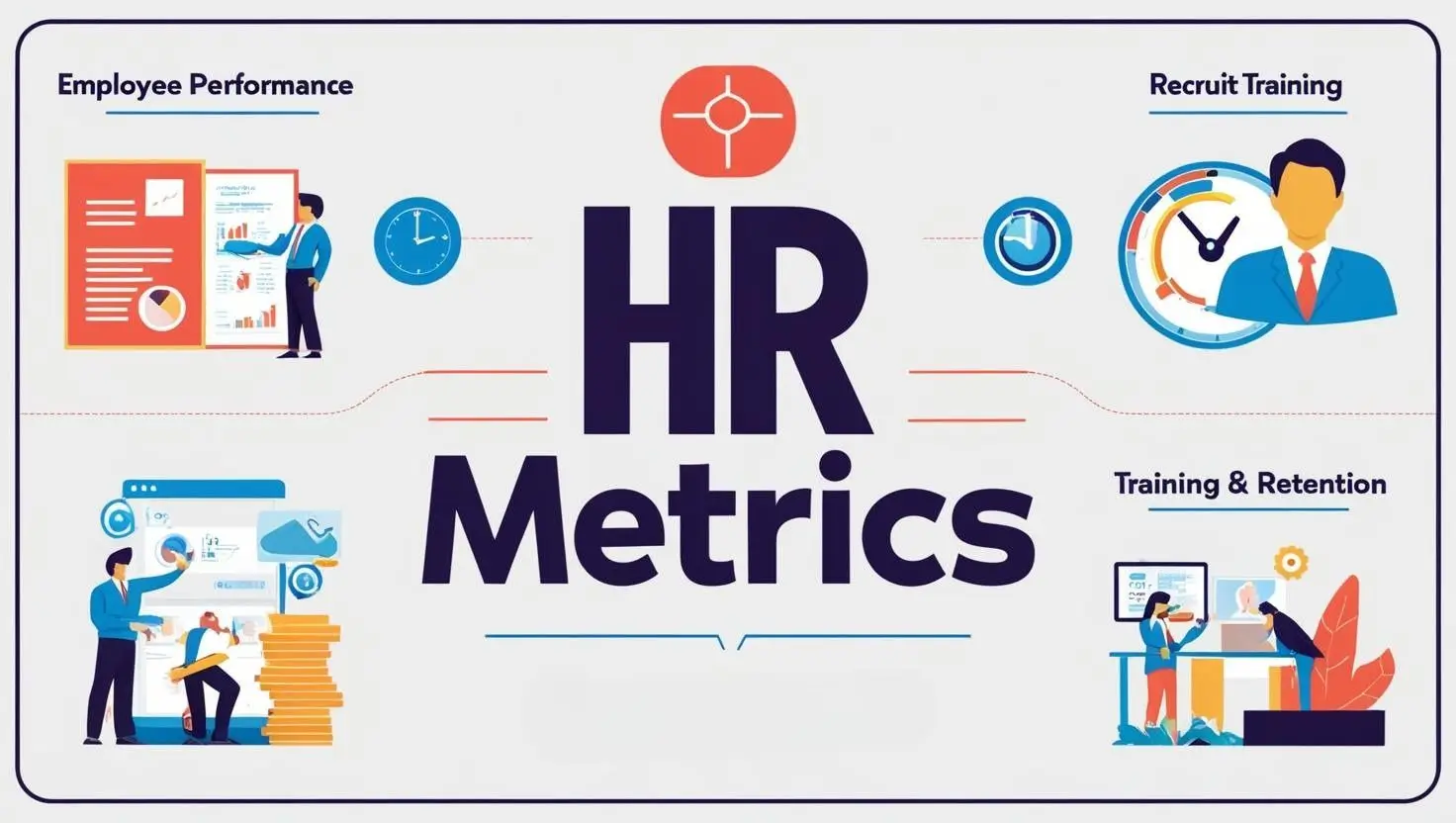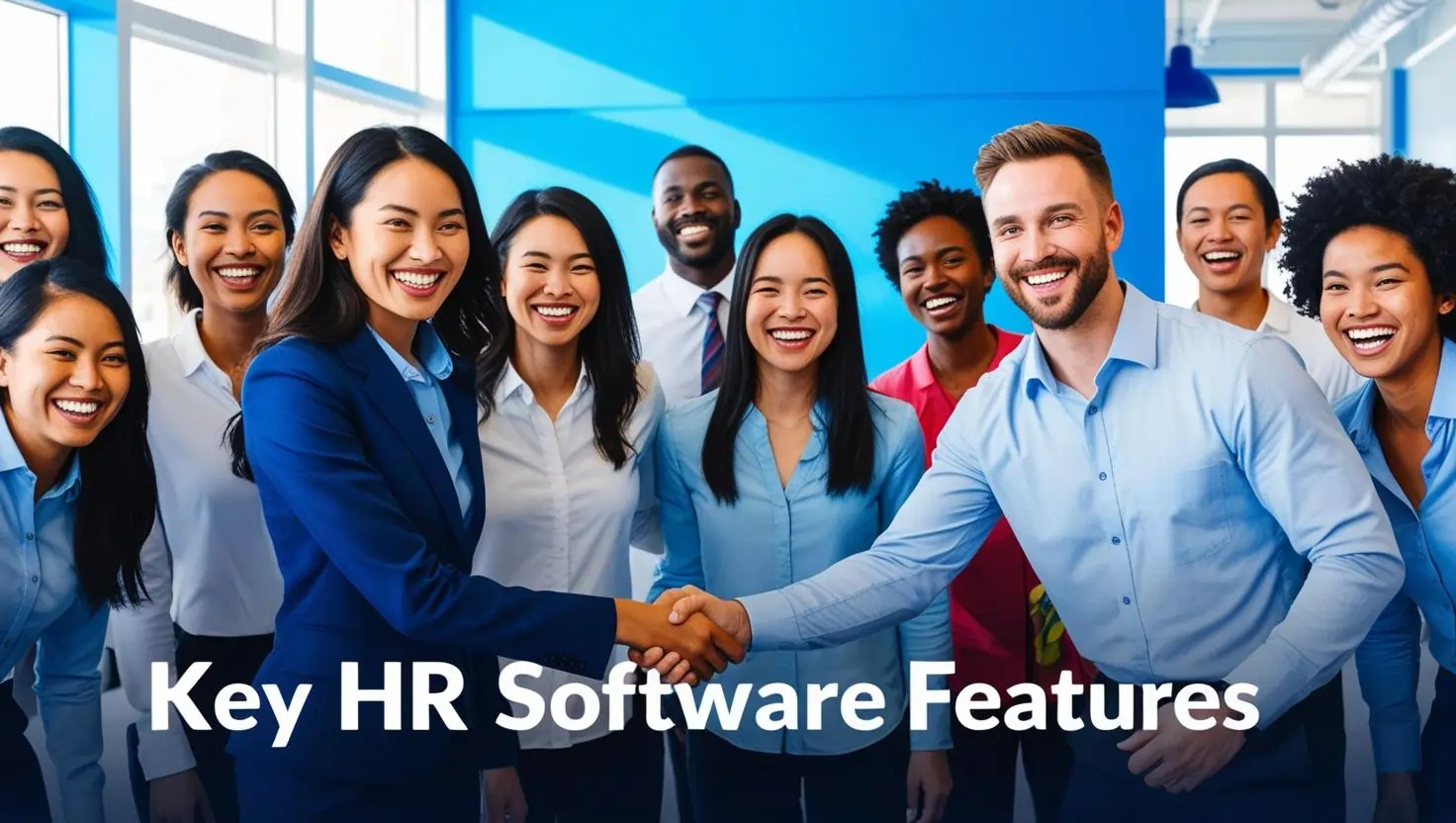Best HR Software for Small Businesses in 2025: Top Solutions Compared
Last updated: September 2025
For small and mid-sized businesses (SMBs), managing HR efficiently is essential to staying compliant, reducing manual tasks, and creating a smooth experience for employees. The best HR software platforms help you automate payroll, onboard new hires, track time, manage benefits, and stay on top of employment regulations—all while keeping costs manageable.
- Advanced analytics to track KPIs & impact
- Automates onboarding, payroll & reporting
- Designed to support fast-growing companies
- Real-time employee tracking
- Business operations one stop-shop
- Quick task management
- All-in-one payroll software
- Over 130+ seamless app integrations
- 24/7 Award-winning support
- Award-winning payroll & HR Software
- Run payroll in a few clicks
- Payroll on Autopilot®
- 24/7 support from HR experts
- Seamless benefits & integrations
- Transparent pricing, no hidden fees
- HR experts at your fingertips in real time
- Workforce analytics
- Full workforce visibility
- Built for all businesses small to large
- Automate tax registration
- Hire and onboard remote employees
- Trusted by 40,000+ businesses
- End to end payroll and HR management
- Customized dashboards and reporting
- Software designed for the unique needs of your business
- Seamless integration with payroll
- 24/7 customer support
Why You Can Trust the Expertise of Sonary
At Sonary, we are committed to providing accurate and trustworthy information to help you make informed decisions. Our research process is meticulous, transparent, and guided by a dedication to maintaining the highest standards of integrity.
Unlike many other review platforms, we conduct in-depth evaluations of the software and services we feature. Our expert team tests and actively uses the tools we review to understand their features, performance, and value comprehensively. Our assessments are based on real-world use, giving you insights beyond surface-level descriptions.
Our research methodology includes analyzing key consumer factors such as pricing, functionality, device usability, scalability, customer support quality, and unique industry-specific features.
This hands-on approach and dedication to transparency mean you can trust Sonary to deliver regular, up-to-date content and recommendations that are well-researched and genuinely helpful for your business needs.
We reviewed top-rated HR software providers and evaluated them based on 30+ criteria, including ease of use, features, pricing, integrations, compliance tools, and suitability for SMBs. Whether you have a team of 5 or 150, this guide will help you find the right platform to support your HR needs and future growth.
Some of the best HR software solutions for small businesses start as low as $8/user/month, while more comprehensive options range from $30 to $99+/month depending on the level of support, features, and scalability. Many platforms also offer free trials or custom pricing based on your needs.
In this guide, you’ll find:
- A breakdown of the top HR software for SMBs in 2025
- Key features that matter most to growing businesses
- Benefits and potential limitations of each platform
- Integration capabilities with popular tools (like QuickBooks, Slack, and Gusto)
- Workflow insights and practical SMB use cases
Why Small Businesses Need HR Software
Small businesses often operate with limited resources, making HR software essential for streamlining operations and improving efficiency. Here are key reasons why small businesses need HR software:
1. Time and Cost Savings
- Automation of Routine Tasks: HR software automates time-consuming administrative tasks such as payroll processing, benefits administration, and attendance tracking. This frees up valuable time for small business owners or HR teams to focus on strategic activities.
- Reduction in Errors: Automating payroll and tax calculations helps minimize human errors, which can lead to costly mistakes and compliance issues.
2. Improved Compliance
- Legal and Tax Compliance: Small businesses need to stay compliant with ever-changing labor laws and tax regulations. HR software ensures timely tax filings, proper employee classification, and adherence to state and federal labor laws, reducing the risk of penalties.
- Record-Keeping: HR software helps small businesses maintain accurate records for audits, employee files, and other regulatory requirements.
3. Streamlined Employee Management
- Centralized Data: HR software allows small businesses to manage employee information, performance records, payroll, and benefits in one central location, making it easier to access and update employee data.
- Employee Self-Service: Employees can access their pay stubs, update personal details, and request time off through self-service portals, reducing administrative burden and improving employee satisfaction.
4. Scalability
- Growth Support: As small businesses grow, HR software scales with them. It simplifies onboarding new employees, managing larger teams, and adapting to new HR demands as the business expands.
- Better Workforce Management: HR software helps small businesses track employee performance, attendance, and development, enabling more efficient workforce management.
5. Enhanced Employee Experience
- Improved Communication: Employees can easily access their benefits information, request leave, and track performance goals, which fosters transparency and boosts engagement.
- Faster Onboarding: HR software simplifies the onboarding process, helping new hires get up to speed faster, enhancing retention, and reducing turnover.
6. Data-Driven Decision-Making
- Analytics and Reporting: HR software provides valuable insights into workforce trends such as turnover rates, labor costs, and productivity. Small businesses can use this data to make informed decisions, optimize their operations, and plan for the future.
Best HR Software for Small Businesses
1. HiBob
Best for fast-growing companies with international compliance needs
 Advanced analytics to track KPIs & impact
Advanced analytics to track KPIs & impact  Automates onboarding, payroll & reporting
Automates onboarding, payroll & reporting Key Features:
- Advanced people analytics and KPI tracking
- Onboarding, payroll, benefits, and time-off automation
- Supports global teams and regulatory compliance
Integrations:
Slack, BambooHR, Greenhouse, Microsoft Teams, QuickBooks, and more
Pros:
- Ideal for scaling SMBs with distributed teams
- Strong data visualization and compliance tools
Cons:
- No transparent pricing; may be expensive for small teams
2. Connecteam
Best for field teams and mobile-first companies
 Real-time employee tracking
Real-time employee tracking  Business operations one stop-shop
Business operations one stop-shop Key Features:
- Employee scheduling, time tracking, and task management
- Built-in chat, forms, and checklists for remote teams
- One-stop-shop for operations and HR
Integrations:
QuickBooks, Gusto, Zapier, Google Calendar, and Excel
Pros:
- Great for non-desk employees and SMBs with field workers
- Intuitive mobile app
Cons:
Limited desktop HR functionality
3. BambooHR
Most recommended for small businesses overall
 All-in-one payroll software
All-in-one payroll software  Over 130+ seamless app integrations
Over 130+ seamless app integrations Key Features:
- Employee database, e-signatures, onboarding
- Payroll and performance management
- Built-in applicant tracking system (ATS)
Integrations:
Gusto, QuickBooks, Slack, Zapier, Microsoft Outlook, and more
Pros:
- Designed specifically for SMBs
- Clean and easy-to-use interface
Cons:
Can get expensive with add-ons
4. Gusto
Best for payroll-first HR management
 Award-winning payroll & HR Software
Award-winning payroll & HR Software  Run payroll in a few clicks
Run payroll in a few clicks Key Features:
- Full-service payroll with automated tax filings
- Benefits administration and HR tools
- Hiring and onboarding support
Integrations:
QuickBooks, Xero, TSheets, Slack, and Asana
Pros:
- Award-winning payroll engine
- Very user-friendly
Cons:
Lacks some deep HR features like performance reviews
5. Justworks
Best for full-service HR + PEO model
 24/7 support from HR experts
24/7 support from HR experts  Seamless benefits & integrations
Seamless benefits & integrations Key Features:
- Payroll, benefits, compliance, and HR support
- 24/7 access to HR consultants
- Transparent pricing
Integrations:
QuickBooks, Slack, Zoom, Xero
Pros:
- Combines software with professional HR services
- Great support for growing teams
Cons:
Higher cost than typical HR SaaS tools
6. TriNet
Best for outsourced HR support
 HR experts at your fingertips in real time
HR experts at your fingertips in real time  Workforce analytics
Workforce analytics Key Features:
- Dedicated HR reps
- Full HR suite with analytics and benefits
- Ideal for businesses looking to outsource HR entirely
Integrations:
ADP, QuickBooks, Salesforce, MS Teams
Pros:
- Enterprise-level support tailored to SMBs
- Strong focus on compliance
Cons:
Requires consultation and setup; not plug-and-play
7. Rippling
Best for automation and IT/HR management combo
 Built for all businesses small to large
Built for all businesses small to large  Automate tax registration
Automate tax registration Key Features:
- Payroll, benefits, IT device and app management
- Automated workflows
Integrations:
Over 500+ apps including QuickBooks, Slack, Zoom, Google Workspace
Pros:
- Manage HR and IT from one platform
- Highly customizable
Cons:
Steep learning curve; pricing structure can be complex
8. Paycor
Best for mid-sized SMBs needing robust HR tools
 Trusted by 40,000+ businesses
Trusted by 40,000+ businesses  End to end payroll and HR management
End to end payroll and HR management Key Features:
- Payroll and HR suite
- Dashboards, reporting, employee development tools
Integrations:
QuickBooks, Indeed, SAP, Oracle, Microsoft tools
Pros:
- Suitable for fast-growing businesses
- Good reporting functionality
Cons:
Higher price; better fit for companies with 50+ employees
9. ADP
Best for enterprise-grade payroll with SMB support
 Software designed for the unique needs of your business
Software designed for the unique needs of your business  Seamless integration with payroll
Seamless integration with payroll Key Features:
- Global payroll, benefits, HR analytics
- Tailored for SMBs with scalable plans
Integrations:
QuickBooks, Xero, Salesforce, Zoho, BambooHR
Pros:
- Recognized leader in payroll
- Scales well as your business grows
Cons:
Limited transparency in pricing and packaging
What Features Matter Most for SMBs?
- Automated payroll and tax filing
- Time tracking and scheduling
- Onboarding and offboarding workflows
- Benefits management
- Compliance and reporting tools
- Employee self-service portals
- Mobile app access
Key Benefits of HR Software for SMBs
- Time savings: Automate routine tasks like payroll, timesheets, onboarding paperwork, and benefits enrollment.
- Regulatory compliance: Stay compliant with labor laws, tax filings, and data protection regulations.
- Better employee experience: Provide self-service tools, streamlined communication, and faster onboarding.
- Improved decision-making: Gain access to dashboards, reports, and analytics to make data-informed HR decisions.
- Centralized data: Keep all employee info, documents, and interactions in one secure, searchable place.
Integration Considerations
- Look for native integrations with QuickBooks, Xero, Slack, Zoom, and Outlook
- Check if your payroll software is compatible with your HR tool
- Explore Zapier or API support if you use multiple SaaS tools
Potential Challenges
- Pricing complexity or hidden fees
- Feature overload for very small teams
- Time required for setup and employee training
- Vendor lock-in with all-in-one platforms
Features That Matter Most for Small Businesses
- Payroll & Tax Automation – Look for built-in or integrated payroll solutions that handle filings, direct deposit, and compliance.
- Employee Onboarding – Digital onboarding workflows, document storage, and task tracking.
- Time & Attendance – Clock-in/out tools, shift scheduling, and PTO tracking.
- Benefits Administration – Enroll employees in healthcare, 401(k), and wellness plans.
- Self-Service Portals – Allow employees to view pay stubs, update personal info, and request time off.
- Performance Management – Goal tracking, reviews, and feedback tools.
- Mobile Access – Especially important for businesses with remote or field-based teams.
- Compliance Tools – Stay on top of local, state, and federal regulations.
Related Articles
Workflow Insights for SMBs
A good HR system should work with your existing operations, not against them. SMBs often lack full-time HR staff, so platforms must:
- Be easy to set up and train on
- Support multi-function users (e.g., office managers doing HR)
- Offer mobile apps for owners or managers on the go
- Include automation that replaces spreadsheets and manual tracking
How to Choose HR Software: A Comprehensive Guide
Selecting the right HR software for your business is crucial for streamlining operations, ensuring compliance, and enhancing employee experience. Here are the key steps to help you choose the best HR software:
1. Assess Your Business Needs
- Identify HR Challenges: Determine the specific HR tasks you want to improve, such as payroll, recruiting, time tracking, performance management, or benefits administration.
- Size and Growth: Consider your current team size and expected growth. Smaller businesses may require simpler systems, while growing businesses may need scalable solutions.
- Compliance Requirements: Depending on your industry and location, consider software that helps you comply with labor laws and regulations.
2. Define Key Features
- Core HR Functions: Look for features like employee data management, payroll automation, time tracking, and benefits administration.
- Advanced Features: Depending on your needs, you may want advanced tools like performance management, recruiting, and analytics.
- Employee Self-Service: Ensure the software includes self-service portals to access pay stubs, benefits, and leave balances.
3. Budget and Pricing
- Software Pricing Models: HR software may charge per user, per employee, or offer a flat rate. Compare pricing models based on your budget.
- Free Trials and Demos: Take advantage of free trials or demos to evaluate the software’s usability and functionality.
- Hidden Costs: Be aware of any extra add-ons, integrations, or support fees.
4. Scalability
- Adaptability for Growth: Choose software that can grow with your business. Ensure it can handle increasing employees, additional HR functions, and more complex compliance needs as your business expands.
5. Integration with Existing Tools
- Seamless Integration: Ensure the HR software integrates smoothly with your existing systems, such as accounting, payroll, or time-tracking tools. This reduces the need for manual data entry and minimizes errors.
- API Availability: Some software offers APIs for custom integrations with other platforms, which can be helpful for businesses with unique requirements.
6. Ease of Use
- User-Friendly Interface: The software should be intuitive and easy to navigate for both HR staff and employees. Complicated systems can result in low adoption and inefficiency.
- Mobile Access: Consider whether the software has mobile access, which is important for employees who need to manage their information on the go.
7. Customer Support
- 24/7 Availability: Look for software that offers reliable customer support, especially if you’re managing critical HR functions like payroll.
- Resources and Training: Check if the provider offers training resources, tutorials, or onboarding support to help your team quickly get up to speed.
8. Security and Compliance
- Data Security: Ensure the software has strong security features, such as data encryption and access controls, to protect sensitive employee information.
- Compliance Tools: Some HR software provides features to help maintain compliance with labor laws, tax regulations, and industry-specific standards.
9. Vendor Reputation and Reviews
- Customer Reviews: Research reviews and testimonials from other users to gauge the software’s performance and customer satisfaction.
- Industry Reputation: Consider vendors with a strong reputation for providing reliable and innovative HR solutions.
10. Customization and Flexibility
- Tailored to Your Needs: Some HR software allows for customization, enabling you to adjust workflows, reporting features, and permissions based on your specific needs.
Plans and prices for HR software
| Plan Type | Average Price (per month) | Common Features |
|---|---|---|
| Basic/Starter Plan | $20 – $50 per user | – Payroll management – Employee data management – Time and attendance tracking – Basic reporting |
| Mid-Tier/Standard Plan | $50 – $100 per user | – All Basic features – Performance management – Benefits administration – Employee self-service portal |
| Advanced/Premium Plan | $100 – $150+ per user | – All Standard features – Advanced analytics – Recruitment and applicant tracking – Custom reporting |
| Enterprise Plan | Custom pricing based on requirements | – All Premium features – Dedicated support – Advanced security features – API access and full customization |
Budget Constraints & Cost Planning
- < $30/month: Platforms like Rippling and Connecteam offer light, modular functionality.
- $30–$60/month: Gusto and BambooHR give strong HR + payroll foundations.
- $60+/month: Justworks, TriNet, and Paycor offer full-service HR support with expert access.
- Custom pricing: HiBob, ADP, and TriNet often negotiate based on team size and needs.
Tip: Choose a vendor that lets you start small and scale features as your HR complexity grows.
Final Thoughts
HR software offers small businesses a simple and effective way to manage key HR tasks, such as payroll, time tracking, and employee data management. By automating these processes, small businesses can save time, reduce mistakes, and focus on what truly matters—growing the business and taking care of their employees.
Although the cost of HR software can range from $20 to $150+ per user per month, it is a smart investment that quickly pays off. The software not only lightens the administrative load but also ensures that small businesses remain compliant with regulations and provide a smooth experience for their staff.
The benefits are clear: improved efficiency, happier employees, and better decision-making with easy-to-use reporting tools. HR software brings organization and peace of mind, making it a valuable asset for any small business looking to work smarter, not harder.














